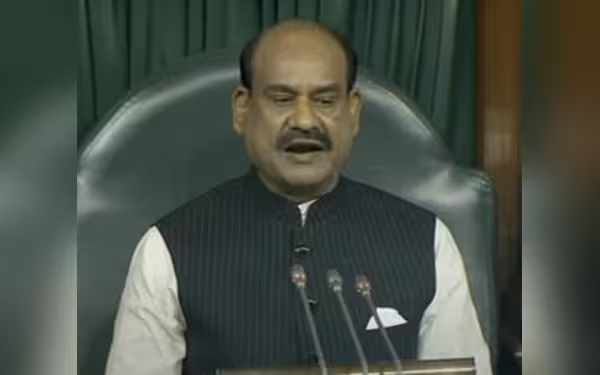Thursday, November 7, 2024 01:34 PM
Opposition MPs Protest Waqf Bill Decisions in India
- Opposition MPs to meet Lok Sabha Speaker over Waqf Bill concerns.
- Allegations of unilateral decision-making by JPC Chairman Jagdambika Pal.
- Opposition warns against undermining parliamentary procedures.
 Image Credits: menafn
Image Credits: menafnOpposition MPs in India protest against the Waqf Bill, raising concerns over unilateral decisions and legislative scrutiny.
In recent developments, the Opposition Members of Parliament (MPs) in India are gearing up to meet Lok Sabha Speaker Om Birla to voice their concerns regarding the Waqf (Amendment) Bill, 2024. This bill is currently under review by a 31-member Joint Parliamentary Committee (JPC), which has come under scrutiny for its alleged "unilateral" decision-making process led by BJP MP Jagdambika Pal. The Opposition claims that the committee's chairman is attempting to "force through" proceedings without adequate consultation, raising alarms about the legislative process.
The Waqf Bill, 2024 aims to amend significant provisions related to Waqf institutions in India. However, the Opposition has formally objected to the pace and frequency of the JPC meetings, arguing that the government is rushing through the legislative process. They believe this undermines the essential parliamentary procedures that ensure thorough scrutiny and debate on such critical issues.
In a letter addressed to Speaker Birla, the Opposition members expressed their discontent over the lack of sufficient time allocated for studying the proposed amendments. They argue that the bill is being pushed forward without proper examination, which is crucial for understanding its implications. The letter, signed by several prominent Opposition leaders, highlights their concerns about the potential erosion of secular principles that have been carefully embedded in previous Waqf legislation.
One of the key points raised by the Opposition is the introduction of over 100 amendments in the new Waqf Bill, contrary to the government's claim of only 44 changes. This discrepancy raises fears that these amendments could significantly alter the religious and moral framework of Waqf institutions, particularly the Waqf Boards, which may face increased political control and interference.
The Opposition has also criticized the rapid scheduling of JPC meetings, arguing that the lack of reasonable time gaps between sittings hampers their ability to prepare adequately. They emphasize the importance of thorough preparation for informed participation in discussions with witnesses and experts. The legal principle "lex prospicit non respicit" (the law looks forward, not backwards) was referenced to stress the need for careful consideration of past judicial decisions and legislative wisdom before making changes to existing laws.
Moreover, the Opposition has raised concerns about the unilateral decision-making process of the JPC Chairman, alleging that meeting dates are being set without proper consultation with committee members. This approach, they argue, makes it challenging for MPs to prepare effectively for their roles in the committee.
In a strong statement, the Opposition warned that the JPC should not be treated as a mere "rubber stamp" for the government's agenda. They cautioned that bypassing established parliamentary procedures, driven by the government's "majority," could severely undermine democratic norms and constitutional principles. The letter concludes with a stern warning that if their concerns are not addressed, the Opposition members may have no choice but to withdraw from the JPC entirely.
As this situation unfolds, it raises important questions about the balance between legislative efficiency and the need for thorough scrutiny in a democratic system. The Opposition's commitment to upholding the rule of law and constitutional values is commendable, and it serves as a reminder of the vital role that debate and discussion play in shaping effective legislation. The outcome of this meeting with the Lok Sabha Speaker could have significant implications for the future of the Waqf Bill and the legislative process in India.













